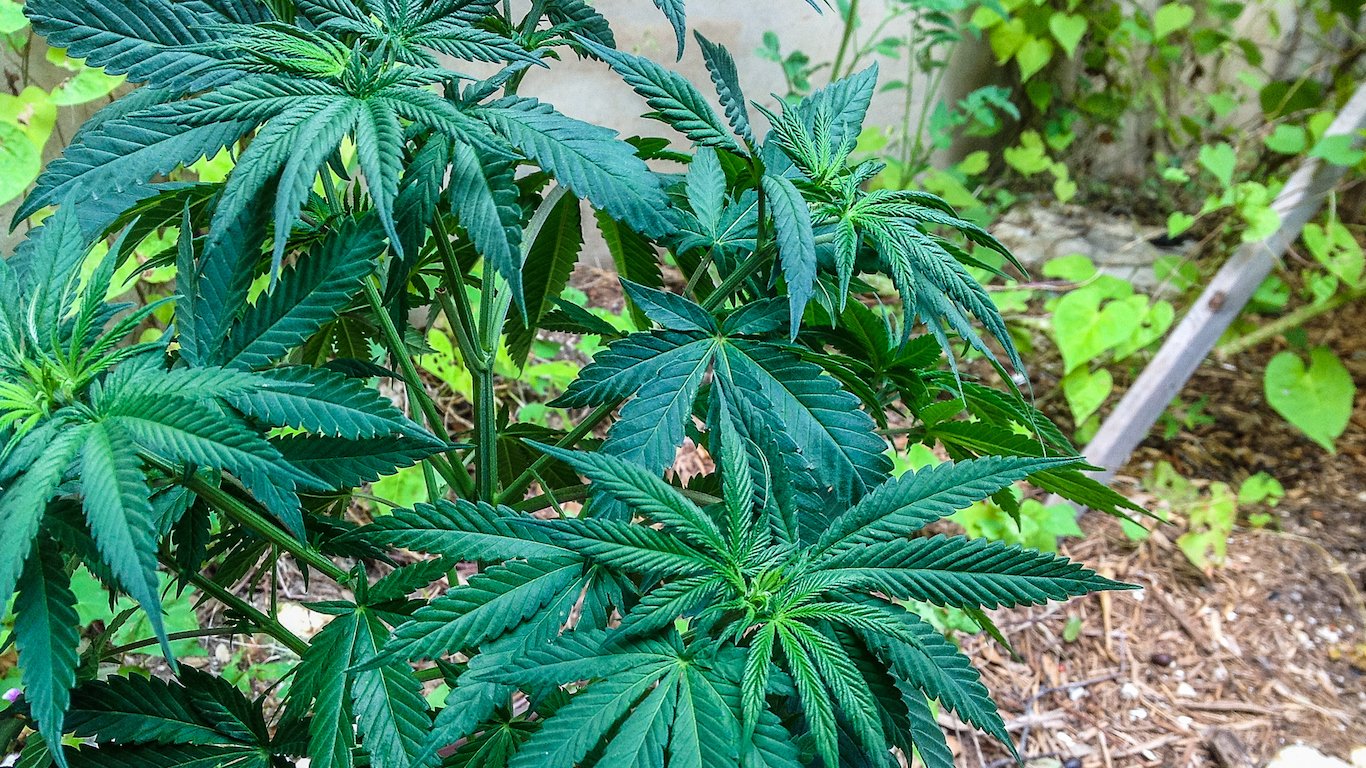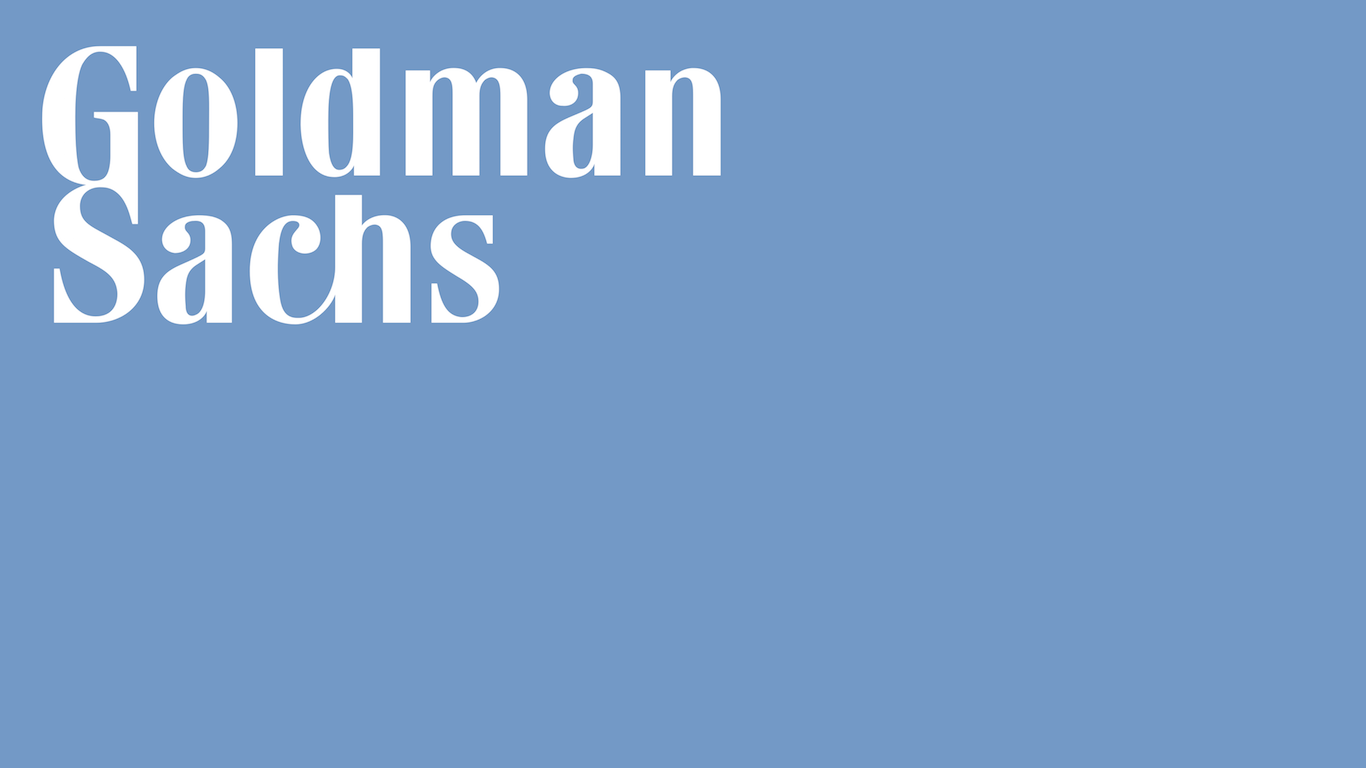
The pack of companies at the top of the marijuana sector changed dramatically in 2018, largely the result of significant investments from large consumer products firms buying their way into the market for cannabis products. The U.S. market for legal cannabis products is forecast to grow from $8.5 billion in 2017 to around $11 billion in 2018, more than doubling to $23.4 billion by 2021. For beverage and tobacco companies where sales have stalled or fallen, this is a growth opportunity too tempting to ignore.
The gold rush began in August when Constellation Brands Inc. (NYSE: STZ), makers of alcoholic beverages including Corona beer, became the largest shareholder in Canada-based Canopy Growth Corp. (NYSE: CGC) and continued in December with Molson Coors dropping $1.8 billion on Hexo. Also in December, Budweiser brewer AB InBev S.A. (NYSE: BUD) entered a joint venture to develop non-alcoholic cannabidiol (CBD) drinks with Tilray Inc. (NASDAQ: TLRY).
Tobacco giant Altria Group Inc. (NYSE: MO) invested $1.8 billion in Cronos Group Inc. (NASDAQ: CRON,) while Coca-Cola Inc. (NYSE: KO) discussed an investment or partnership with Aurora Cannabis Inc. (NASDAQ: ACB) before deciding to keep its powder dry.
In addition to softening sales, big beverage and tobacco companies that get into the market early may be getting a bargain, even if the valuations of the cannabis companies appear generous. Cannabis industry research firm Arcview Group CEO Troy Dayton commented last June:
The end of marijuana prohibition is in sight and what that means for this market cannot be overstated. There are billions of dollars in institutional capital chomping at the bit to take advantage of this shift, but so far haven’t found a major way in. This leaves a limited window for businesses to get a foothold and build value for liquidity events that might come sooner than any of us thought possible just a few months ago.
Looking back at 2018, there were three other major developments in the marijuana industry. Two were directly related to marijuana products: the beginning of legal recreational marijuana sales in California and the start of legal recreational sales throughout Canada, despite delays to Canada’s launch and regulatory issues in California. These two locations are expected to capture 41% of the global market in 2022.
The third was the removal of industrial hemp from the U.S. list of Schedule I controlled substances. The change opens the door to the production and sale of non-psychoactive CBD products promoting wellness. Canaccord Genuity has forecast demand for CBD beverages of around $260 million by 2022 from essentially zero today. Demand for beverages containing THC, the psychoactive ingredient in marijuana, is expected to reach $340 million in the same time frame, up from around $106 million currently.
Which are the largest marijuana companies best positioned to take advantage of the coming boom in legal cannabis sales? One way to look at that is to identify the largest companies in the sector and see how they have performed over the past year.
To do that we looked at the top 10 U.S. and Canadian companies by market cap. We included only those companies that trade on major exchanges. Where one company trades on the Toronto Stock Exchange (TSX) in Canada and over the counter in the United States, we use only the exchange data for market capitalization. For companies that trade on both a U.S. and a Canadian exchange, we have used the data for the U.S. exchange.
Here are the 10 largest marijuana companies, listed by market cap as of December 31, the last trading day of 2018, along with the company’s share price growth since 2017 or its listing. Toronto-traded equities are shown in Canadian dollars (as of December 31, C$1 equals $0.733).
1. Canopy Growth
> Market cap: $9.28 billion
> Year-to-date stock price change: +3% (since NYSE listing in January 2018)
Canopy Growth Corp. (NYSE: CGC) is a diversified cannabis company that produces and sells legal marijuana in the Canadian medical and recreational market. The company’s market cap is up by about 63% since listing on the NYSE in mid-January of 2018. Shares closed at $26.87 on Monday, and the stock’s 52-week range is $16.74 to $59.25. The consensus price target on the stock is around $48.
2. Tilray
> Market cap: $6.57 billion
> Year-to-date price change: +215% (since Nasdaq listing in July 2018)
Tilray Inc. (NASDAQ: TLRY) is another Canada-based company that produces mainly medical marijuana. Following its Nasdaq listing in July, shares jumped nearly nine-fold before settling back down. The company did not even exist in 2017. Shares closed at $70.54 Monday, and the stock’s 52-week range is $20.10 to $300.00. The consensus price target on the stock is $140.00.
3. Aurora Cannabis
> Market cap: $4.99 billion
> Year-to-date stock price change: −91%
Aurora Cannabis Inc. (NASDAQ: ACB) is another Canadian company focused on growing and selling medical marijuana. In July, the company acquired grower CanniMed for $1.1 billion, and in May, Aurora paid $2.5 billion to acquire MedReLeaf, another Canadian marijuana grower (both were included in last year’s top 10). The company’s market cap has grown from $4.25 billion a year ago. Shares closed at $4.96 on Monday, and the stock’s 52-week range is $4.05 to $12.53. The consensus price target is $9.34.
4. Scotts Miracle-Gro
> Market cap: $3.40 billion
> Year-to-date stock price change: −43%
Most of this company’s activity in the marijuana market has been to acquire hydroponic growers and carve out space for itself as the leading supplier for indoor growers. The Scotts Miracle-Gro Co. (NYSE: SMG) saw its market cap fall by about 45% in 2018. Shares closed at $61.46 on Monday, and the stock’s 52-week range is $57.96 to $110.12. The consensus price target is $87.00.
5. GW Pharmaceuticals
> Market cap: $3.15 billion
> Year-to-date stock price change: −27%
GW Pharmaceuticals PLC (NASDAQ: GWPH) is a biopharmaceutical company that develops and commercializes therapeutics using a proprietary cannabinoid product platform. The firm’s CBD treatment for rare forms of epilepsy — Epidiolex — received U.S. Food and Drug Administration approval for sale in 2018, the first CBD product ever to do so. The company’s market cap dipped by about 6.9% in 2018. Shares closed at $97.39 on Monday, and the stock’s 52-week range is $95.75 to $179.65. The consensus price target is $173.17.
6. Cronos Group
> Market cap: $1.87 billion
> Year-to-date stock price change: +36% (since Nasdaq listing in February 2018)
Cronos Group Inc. (NASDAQ: CRON) is a Canada-based investment firm specializing in the marijuana market. The $1.8 billion Altria investment for a 45% stake in Cronos represents a fraction of the $12.8 billion Altria paid for a 35% stake in e-cigarette maker Juul. Cronos closed at $10.39 a share on Monday, and the 52-week trading range is $5.12 to $15.30. The consensus price target is $10.69.
7. Aphria
> Market cap: $1.43 billion
> Year-to-date stock price change: −53.5% (since NYSE listing in November)
Aphria Inc. (NYSE: APHA) is another Canada-based grower and seller of medical marijuana through retail stores and wholesale distribution. The company’s market cap dropped by 49% in 2018, and shares are down about 50% for the full year on the Toronto exchange. New York-traded shares closed at $5.69 on Monday, and the stock’s post-IPO range is $5.60 to $6.10. The consensus price target on the stock is $9.88.
8. Hexo
> Market cap: C$933.4 million
> Year-to-date price change: +11.1%
This Canada-based grower came public in early January of 2018. Hexo Corp. (TSX: HEXO) has a deal to supply up to 200,000 kg of cannabis over five years to the Quebec Crown corporation responsible for the cannabis trade in the province. The company is also seeking a U.S. listing on the NYSE American exchange. Shares closed at C$4.71 on Monday, and the stock’s 52-week range is C$3.70 to C$9.29. The consensus price target is C$8.89.
9. CannTrust
> Market cap: C$692.34 million
> Year-to-date share price change: −33.6%
CannTrust Holdings Inc. (TSX: TRST) produces and distributes medical and recreational cannabis products in Canada. The company expects to increase its annual growing capacity by 50,000 kg next year and by another 100,000 kg by the beginning of 2020. Shares closed at C$6.57 on Monday, and the stock’s 52-week range is C$5.86 to C$15.50. The consensus price target is C$14.51.
10. Green Organic Dutchman
> Market cap: C$661.6 million
> Year-to-date stock price change: +40.1% (since TSX listing in May 2018)
This cannabinoid product development firm is based in Ontario and is developing and marketing organic cannabis products. Aurora Cannabis has invested C$78 million in Green Organic Dutchman Holdings Ltd. (TSX: TGOD) and holds a purchase option on 20% of its organic products. Shares closed at C$2.46 on Monday, and the 52-week range is C$1.22 to C$10.24. The consensus price target is C$7.00.
Share prices fell across the board on the larger firms, even though their market caps increased as a result of investments from consumer products giants.
Take This Retirement Quiz To Get Matched With An Advisor Now (Sponsored)
Are you ready for retirement? Planning for retirement can be overwhelming, that’s why it could be a good idea to speak to a fiduciary financial advisor about your goals today.
Start by taking this retirement quiz right here from SmartAsset that will match you with up to 3 financial advisors that serve your area and beyond in 5 minutes. Smart Asset is now matching over 50,000 people a month.
Click here now to get started.
Thank you for reading! Have some feedback for us?
Contact the 24/7 Wall St. editorial team.
 24/7 Wall St.
24/7 Wall St.


